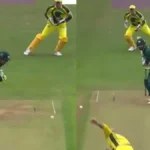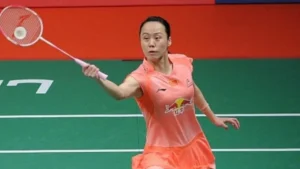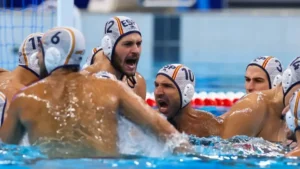Roll ball is a game played between two teams and is a unique combination of roller skates, basketball, handball, and throwball. It is played on “roller shoes” with each team consisting of twelve players, six on the field and six in reserve. The main objective of the game is to score maximum goals within a stipulated time. The main feature of Roll Ball is that the ball is held in one or both hands, when passing to the other players, with the ball repeatedly bounced on the ground.
Origins & Growth
Roll Ball was invented by a Pune-based Indian Raju Dabhade in 2003 who was then a physical education teacher. Inspired one day when a stray basketball rolled into a skating class, Dabhade began experimenting by fusing the dynamics of roller skating, basketball, handball, and throwball. The first demonstration match took place on February 2, 2003, and by 2005 the International Roll Ball Federation (IRBF) had been established.
Since then, the sport has seen a remarkable growth. As of 2024, it is played in over 60 countries, with major tournaments like the Roll Ball World Cup—first held in Pune in 2011—drawing teams from around the globe. In the 2023 World Cup in Pune, Kenya’s men’s and women’s teams both triumphed, making history on home soil.
Court & Equipment
- Court dimensions: 28–40 m long and 15–20 m wide, with a hard surface—concrete, wood, or clay
- Markings: Centre line, 5 cm boundary, penalty line (3.5–4.5 m), free‑throw “D” zone (2.5–3.5 m), plus a 3 m safety margin
- Goals:
- Seniors/U‑17: 2.25 m × 2.00 m
- U‑11/U‑14: smaller goals at 2.0 m × 1.75 m
- Seniors/U‑17: 2.25 m × 2.00 m
- Ball:
- U‑11/U‑14: ~340–500 g, ~54–70 cm circumference
- U‑17/seniors: ~75–78 cm circumference
- U‑11/U‑14: ~340–500 g, ~54–70 cm circumference
- Gear: All players wear roller skates, helmet, and knee pads; goalkeepers also wear a chest protector.
Teams & Match Structure
- Each team has 12 players (6 on-court, 6 reserves).
- Matches typically consist of:
- Two 20-minute halves (or occasionally 25 minutes each with a 10-minute break).
- If tied, games may go into up to 5 minutes extra time.
- Two 20-minute halves (or occasionally 25 minutes each with a 10-minute break).
- Unique “three-second” rule: players must pass the ball within 3 seconds after stopping dribbling .
- Running on wheel brakes (“stoppers”) is prohibited.
Key Skills & Rules
Roll Ball demands:
- Speed & balance on roller skates
- Dribbling & bouncing the ball continuously while skating
- Passing & teamwork—no backward passing is allowed
- Tactical awareness, especially in fast transitions between offense and defense
It’s a non-contact sport, but referees hold strong control over gameplay—requiring players to develop managerial skills such as anticipation and decision-making.
Tournaments & International Scene
- Roll Ball World Cup (biennial since 2011):
- 2011 Pune: Denmark (men) took the first title
- 2013 Nairobi: India (men) prevailed
- 2015 Pune: India (men) again champions
- 2017 Dhaka: India defended with close wins
- 2019 Chennai: India (men), Kenya (women)
- 2023 Pune: Kenya (men & women) won
- 2011 Pune: Denmark (men) took the first title
- Asian Championships:
- 4th held in Goa, India, in Dec 2024, featured 12 nations
- 4th held in Goa, India, in Dec 2024, featured 12 nations
- University and youth programs:
- Adopted across Indian universities and schools
- Adopted across Indian universities and schools
- Professional leagues:
- Maharashtra launched the “Maha Roll Ball League” in 2016 with 14 teams across boys’ and girls’ divisions
- Maharashtra launched the “Maha Roll Ball League” in 2016 with 14 teams across boys’ and girls’ divisions
Social Impact & Future Prospects
- Guinness World Record: In June 2018, 309 players played continuously for 24 hours in Karnataka, scoring 664 goals
- Its reach spans youth, gender equality (strong women’s national teams), and new regions—including growing traction in the UAE, where inclusive programs like “Wheel Ball” are being launched to include differently-abled athletes .
- Olympic dreams: India and UAE federations are actively pushing for global recognition; IRBF and RBFI aim for inclusion in multi-sport events like the Commonwealth Games and eventually the Olympics
Also Read: Pickleball Becomes Sour For US Tennis
Why Roll Ball Stands Out
- Dynamic Fusion – blends skating agility with bouncing/passing intensity.
- Skill-driven – emphasizes fitness, coordination, strategy, and split-second judgment.
- Inclusive & Relatable – accessible equipment, clear rules, played in schools, colleges, arenas.
- Global footprint – with 60+ nations, university circuits, youth leagues, and rising professional opportunities.





























